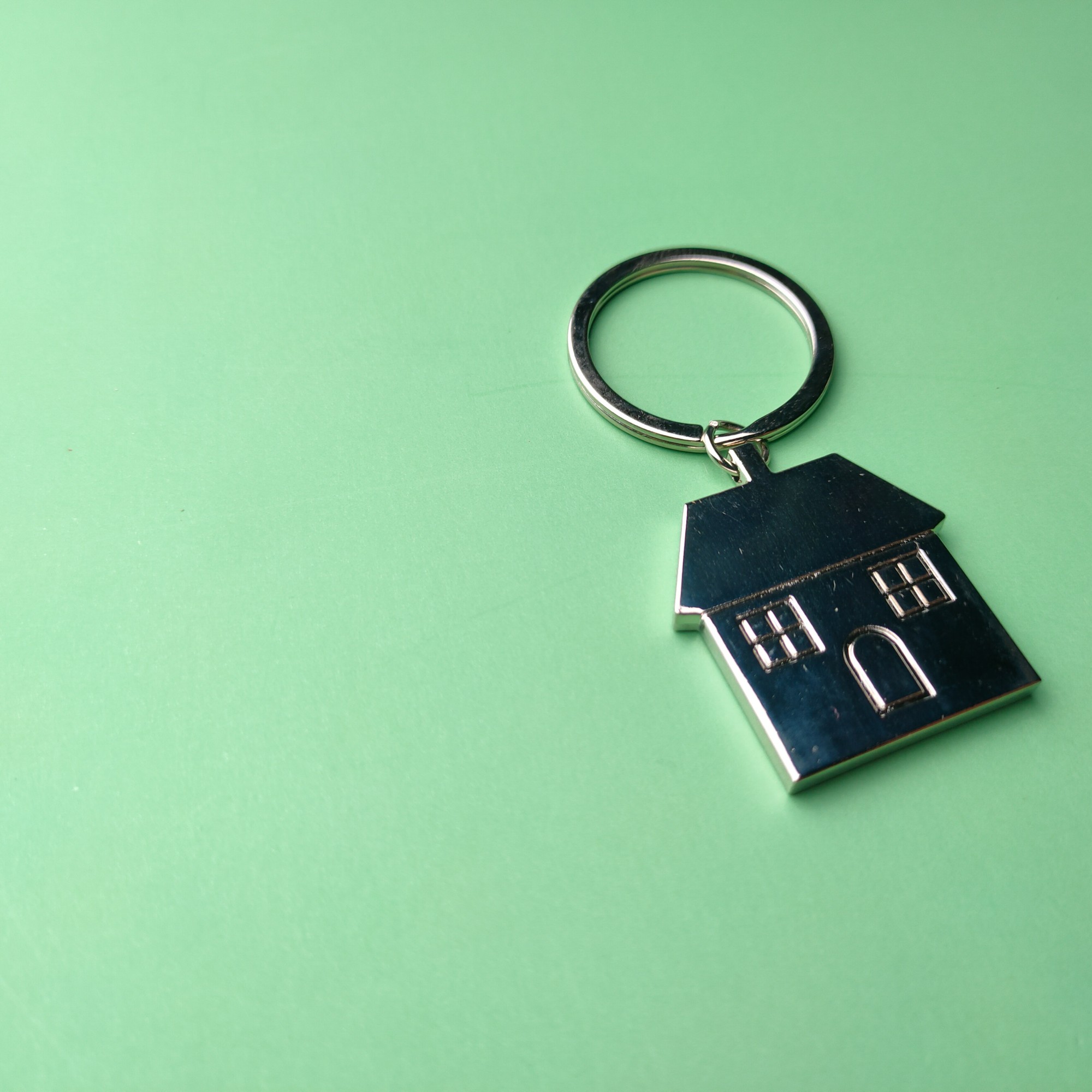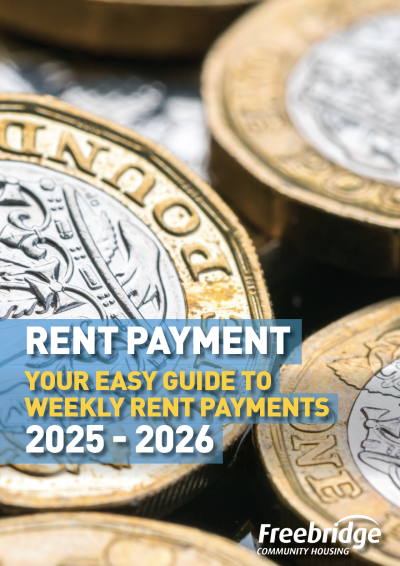

We want to make sure that you understand everything you need to know about paying your rent, what to do if you're worried, and that you understand any benefits that you may be able to claim.
If you have any questions about your rent account or what benefits you may be able to receive, please call or email us.
If you need help with paying your rent, please take a look at our Rent Support page.
If you claim Universal Credit, you will get a 'to do' prompt on your online Universal Credit account, to update your new housing costs. On 7th April 2025 you must complete this 'to do' by updating your new rent and service charges if applicable.
If you fail to do this, your Universal Credit claim will be calculated incorrectly and as a result you may not be paid what you are entitled to. If you report the change late, your payments will not be backdated.
This is the legal notice that we are required to send to you to confirm the detail of the rent increase. It also contains details of any other fixed service charges that you are liable for.
If you are struggling with affording any of your household costs such as heating your home, or buying food, please contact our Tenancy Support Team on 03332 404 444 and hold the line.
You can also email them at [email protected] as we may be able to help with bills through our Support Fund.
We've compiled a list of FAQ's below which cover things like how we calculate our rent, to what Service Charges are.
PAY ONLINE
You can also use our handy Rent Payment Sheets below to keep track of your weekly rent

If you need any help with paying your rent, please contact our Income Team on 03332 404 444 and choose option 3 to speak to the team.
How do you work out my rent? (Socail rent)
Since 2001 we (and all other social landlords - housing associations and local councils) have been required to use a Government formula to set your rent.
The formula is based on:
The rent calculated in this way is called the ‘Formula rent’.
How do you work out my rent? (Affordable rent)
We charge affordable rents to fund the building of new homes in our area, and the rent is calculated to be:
For example, if a home similar to yours was rented by a private landlord for £100 per week, we would only charge you a maximum of £80 per week.
Every time an affordable rent property is re-let the rent will be recalculated (known as ‘rebasing’) to make sure it remains no more than 80% of a current private rent.
What does my rent pay for?
Paying your rent is one of the most important parts of your tenancy agreement. If you do not pay your rent, you could lose your home and it will also make it financially difficult for us to repair and maintain all of our properties. Rent must be paid a week in advance.
We will clearly show how much the rent and any service charges for your home will be.
How and when will my rent change?
Each year our Board will confirm the increase to be applied to all rents. For both domestic properties and garages this will typically be by CPI (Consumer Price Index) + a maximum of 1%.
Shared ownership properties will increase annually by no more than inflation (Retail Price Index) + 0.5%.
Your new rent is payable from the first Monday in April each year. We will write to you at least one calendar month before the new rent is due.
When my rent increases, what do I do?
If you receive Housing Benefit then we will tell the local Council that we have increased your rent. If you receive Universal Credit, you will need to update the DWP. They will then work out your entitlement and write to you to let you know.
If you pay by Direct Debit then we will automatically increase your payments and you do not need to let your bank know.
If you pay by Standing Order then you will need to contact your bank to let them know the new amount that your standing order must cover.
If you pay by card, cheque, post, over the internet or over the phone then you will need to start paying the new amount from the date it takes effect.
What can I do if I disagree with the rent that you have set for my home?
You can ask us to explain in more detail how we have calculated the rent and to check that it is correct. If you are still not happy some tenants can appeal to an independent tribunal; Citizens Advice can assist you to do this.
What are rent free weeks?
Dependent on the type of tenancy you hold with us, you may be entitled to four rent-free weeks throughout the year.
Each rent year runs from the first Monday in April, through to the day before the first Monday in April the following year. Depending on where the first Monday in April falls, this sometimes means that the rent year runs for 53 weeks before the rent is increased again.
In 52 week years we charge over 48 weeks, in 53 week years we charge over 49 weeks. This means that there are always 4 weeks each year where we make no charge - 2 at the start of April and 2 over Christmas and the New Year.
If you are in arrears at these times you should continue to make your normal payments.
What properties will be let at an Affordable Rent?
Freebridge Community Housing charge affordable rents (which are typically higher than our ‘social’ rents) on properties which have often had improvement works.
An affordable rent is set when a property is first advertised, so you will know before you choose to bid for a property how much the rent is. Current Freebridge tenants who choose to move to another home should also consider this when bidding.
If you are successfully nominated to us by West Norfolk Home Choice for a property on an affordable rent then we will also make a detailed assessment of your finances, to make sure that you can afford the rent, before proceeding with an offer of a tenancy.
If we feel that you will not be able to afford the rent then we may decline your nomination, or we may offer you an alternative property at a ‘social’ (lower) rent.
What are Service Charges?
If you live in a property with shared facilities, such as a block of flats or a sheltered scheme, you may have to pay additional charges to cover the cost of maintaining the communal areas.
If you do have to pay a service charge, you will receive a separate statement each year showing you how much you have been charged, and how much the services cost.
We will only make a reasonable charge for these services in addition to the net rent; the total of both the net rent and any service charges will be treated in our Tenancy Agreements, and as part of our collection processes, within the total rent charge of the property.
I pay a Service Charge, how is this calculated?
Service Charges are calculated by reviewing the actual costs incurred for services during 2023/24 and early 2024/25. We then apply any over or under charges from previous years to calculate the weekly figure that you will pay from April 2025.
If one of your charges is zero in 2025/26 it is likely to be because our estimate last year was too high.
Please contact us immediately if you have problems paying your rent. If you fall behind with payments and you don’t tell us, we can take legal action, which could mean you would lose your home. You may have other debts to pay but payment of rent should be your first priority.
Don’t let your debts build up. Once we know you have a problem with paying, we can often help you and have dedicated staff to do this by:
If you do not pay your rent we will:
We are here to help. If you are experiencing difficulty in making your rent payments, please call our Income Team on 03332 404 444.
Citizens Advice provides advice and assistance on a variety of subjects, from relationship breakdowns to civil disputes and money problems. The CAB can also give debt counselling and benefit advice.